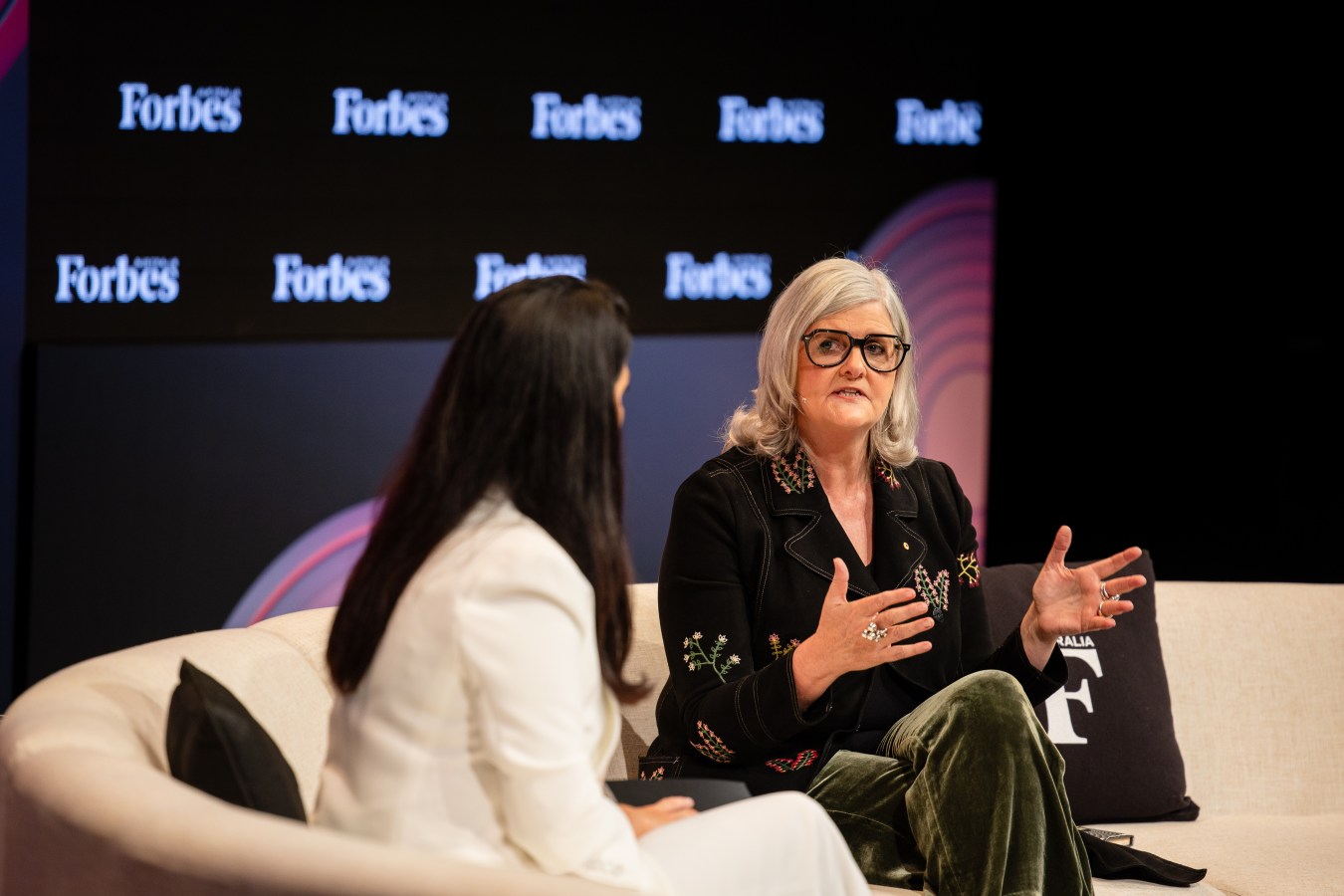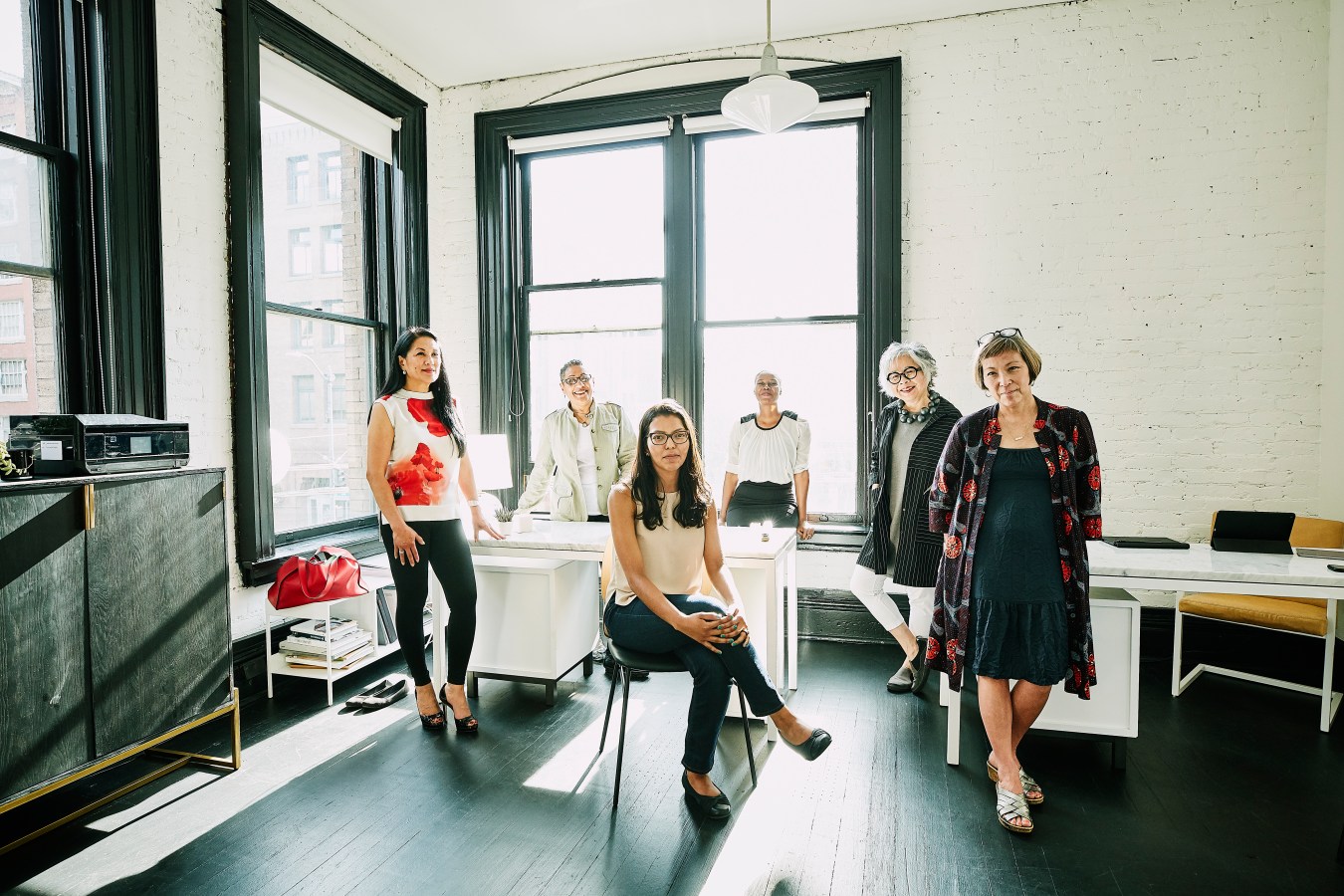Samantha Mostyn – executive, serial board member and equality advocate – has led a life seemingly curated to make her an ideal head of state. But will the next governor-general be able to stay within the rails of vice-regal restraint?
By Mark Whittaker & Sarah O’Carroll
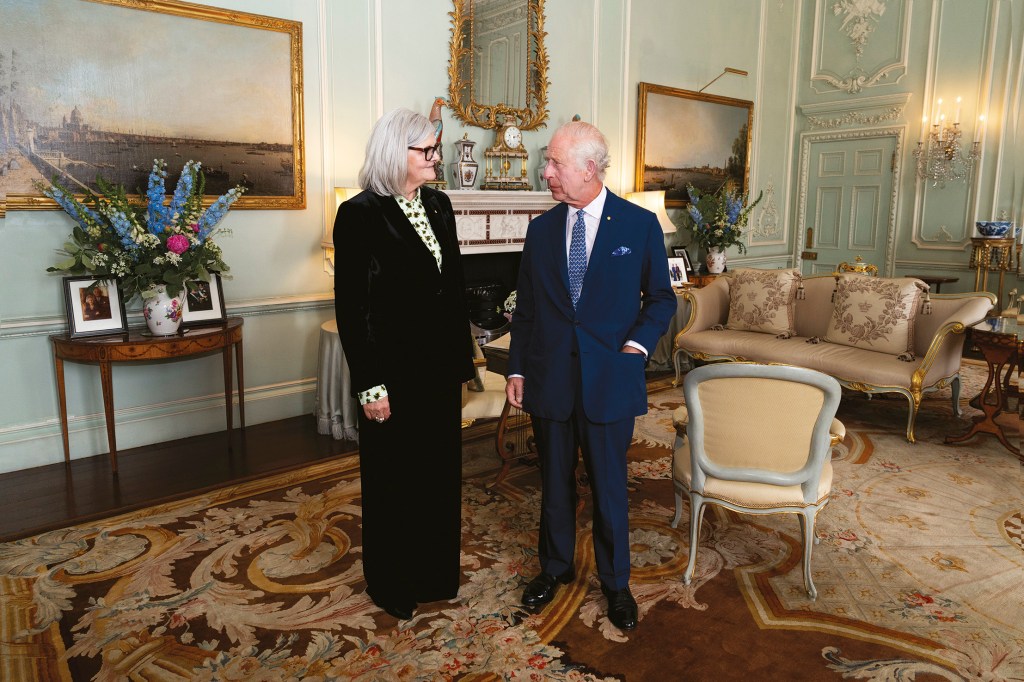
This article is featured in Issue 11 of Forbes Australia, on stands Monday, 17th June. Tap here to secure your copy.
Sam Mostyn grew up in a military family, but came out of university all fired up with various strong views, feeling equipped at last to take on her dad in a conversation about the Vietnam War. The future Governor-General would remember sitting down with him and telling him how pointless the war had been and asking why he went and why he didn’t oppose it.
Her father, Bill Mostyn, who’d risen to the rank of colonel, cut her off. “You’ve got to understand the life I’ve chosen is to serve Queen and country. I had no decision about going. I was a servant of the country. You’ve just got to be more respectful before you go down this path of assuming everything can be fixed from a notion of peace or justice.”
She says the lesson he proceeded to teach her about not imposing her views on others stuck. “I’ve taken that across everything I’ve ever done: to stop the activism impulse to want to change the world rapidly, or to fight and contest things, and always to ask the question, ‘Where do I find where this person is at? What forms their views and what has formed mine?’”
“She met [King Charles] when they were doing common work in green spaces … in London. She got to know a lot of the work that was being done and a lot of his dreams about leadership.”
Wendy McCarthy, Mostyn’s friend and colleague
They are lessons whose poignance have increased somewhat since it was announced on April 2 that Mostyn would be taking over vice-regal duties from July 1. Her appointment copped criticism from right-wing pundits objecting to her activist past. Still, Mostyn has spent a career gliding between the competing tensions of profit and protest, of loudspeaker and listener. And ability, which has led some to predict she will change the role forever.
Showing Up
While Bill Mostyn was serving in Vietnam as a lieutenant, Mostyn, her mother, and three younger sisters lived with their grandmother in Adelaide, where they would receive tape recordings from Dad which served as good-night stories.
They subsequently moved a lot as Bill rose through the ranks, eventually landing the family in Canberra.
The idea of service was always front and centre of her “big bumbling family”. They door knocked for the Salvos and the Heart Foundation. “My younger sister also has an intellectual disability, and we spent a lot of time as a family involved in the disability sector,” Mostyn told the Forbes Australia Women’s Summit in her last interview before her vice-regal appointment. “We just had this sense of volunteerism – showing up, doing the right thing, and remaining humble. Those formative years set in train [the questions], What does service look like? What does integrity look like? What are you really gonna stand for? And don’t get too full of yourself along the way.
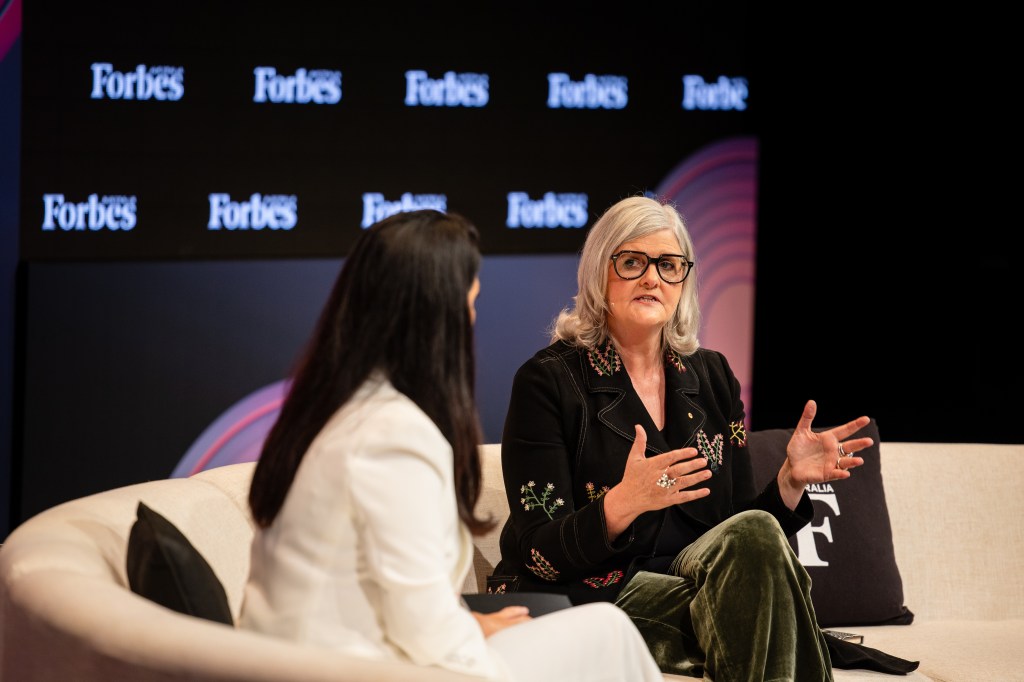
“I also watched my mother. She studied science and trained as a librarian, but from the time she married, it was impossible for her to pursue a career and be married. She couldn’t get a bank loan. She couldn’t get a job. She had to be effectively the carer for us and put aside all of her personal ambitions. She loved being a mum – a wonderful mother – but that stayed with me throughout my adult life.”
Wearing the trousers
After politics, Mostyn graduated in law and presumed that was where her future lay. She became assistant to Justice Michael Kirby in the NSW Court of Appeal but saw few women at the bar and no senior counsel. She got a job with a large law firm.
“To watch the behaviour of the legal system back then – the women were treated differently. We were told how to dress, and the younger associates were hit on by senior partners. It was just the normal stuff of how you’re going to get on here,” Mostyn told former prime minister Julia Gillard in Gillard’s A Podcast of One’s Own. Women couldn’t wear pants unless they had a disfigurement. “Fortunately, I had a reconstructed knee with a small scar, so I claimed it as a disfigurement so I could wear trousers.”
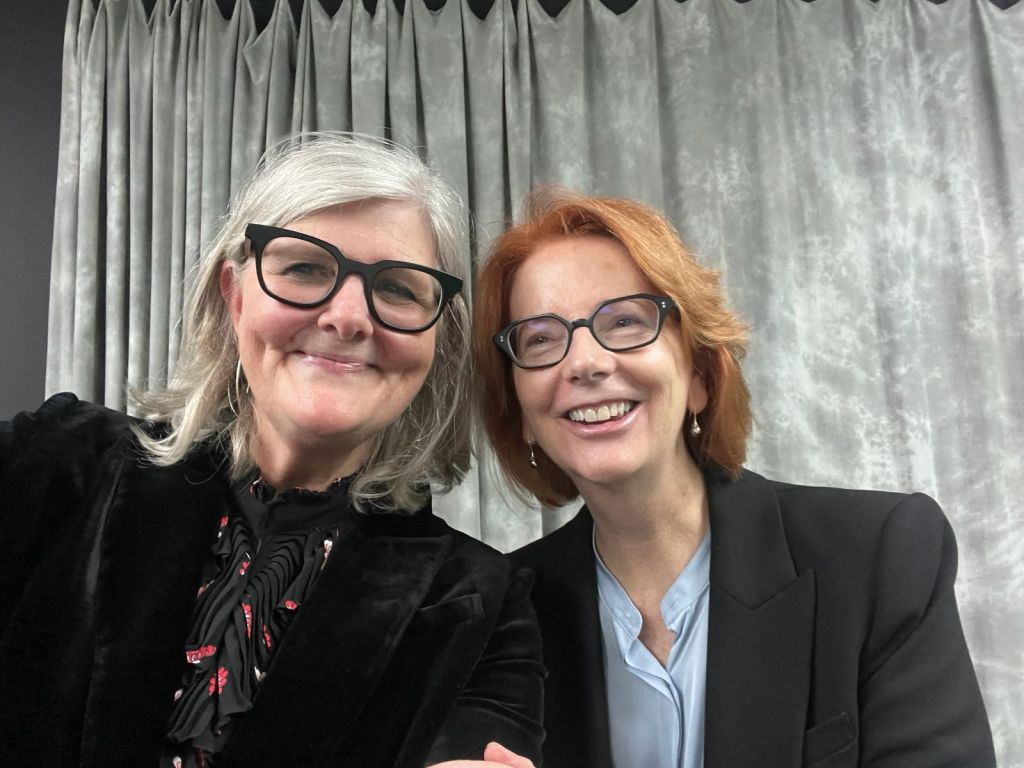
Pants or not, she figured the law wasn’t for her after all.
She found herself back in Canberra working for Labor government ministers advising on communications policy, eventually landing in Prime Minister Paul Keating’s office in 1995.
“His big story was that imagination and courage are what defines leadership. You take on the big things, and you stick with them, and you put yourself second to the outcome. I’ll never forget him saying – when he was refusing to take any Australian honour – that the honour as a public servant was public progress, and that’s all he wanted.”
“I would describe her as one of the very best executives I ever saw.”
Former Optus Vision CEO Geoff Cousins
She was scathing about the work culture of Parliament House. “It was a shocking environment,” she told Gillard. “As an adviser, it was a toxic, horrible environment where there were no rules. You add alcohol to that and …”
After the defeat of the Keating government in 1996, Mostyn went to the private sector.
Mentors
Geoff Cousins remembers the chaos when Optus Vision was a start-up, and he’d just hired the future governor-general into the executive team. It was Mostyn’s first corporate job. “I knew from the first minute I hired her she was an exceptional person,” recalls Cousins.
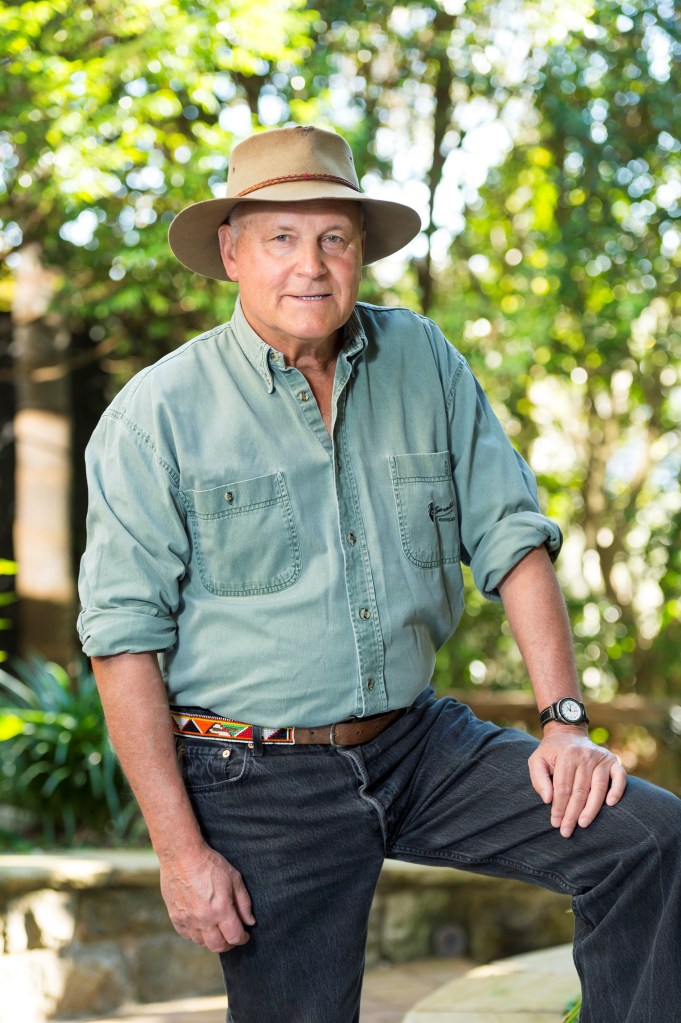
The telecommunications company had grown in less than a year from zero to several hundred employees when Mostyn joined and would reach 2,000 soon after. “The speed of trying to get things in place was quite astonishing,” says Cousins. “Sam was extremely good at remaining calm amid what was mayhem to other people. And also quite firm. They’re her great qualities.”
Mostyn was displaying an easy diplomacy that would see her become friendly with an extraordinary cross-section of society, from the then Prince Charles with all his soft-edged causes to blokey businessmen, or groups of indigenous women sitting under trees. They were skills gained in a life that, in hindsight, would build to make her an easy choice to take on the role which, at least as far as the Constitution is concerned, makes her the most powerful person in the country.
“We had a diverse group of people on the executive team, and some were very rough, but she was able to handle them very well.”
Former IAG CEO Michael Hawker
At Optus in 1996, the nature of the business was that they had to spend billions stringing out a cable network on telephone poles before they could make a single dollar of income. “We were a small team at the executive level,” says Cousins. “There were probably six or seven of us only just keeping track of all this massive money going out the door, with negotiations on every site, and shareholder relationships and goodness knows what.
“It was the world’s first HFC [hybrid fibre-coaxial] network that carried both fixed-line telephony and high-speed internet in the one cable, and in order to do that, there were a massive number of complex negotiations with all local councils and governments, and all kinds of other interests who were either highly in favour or highly opposed. Sam’s calm but firm demeanour was critical in all those negotiations because I didn’t have time to do much of it.
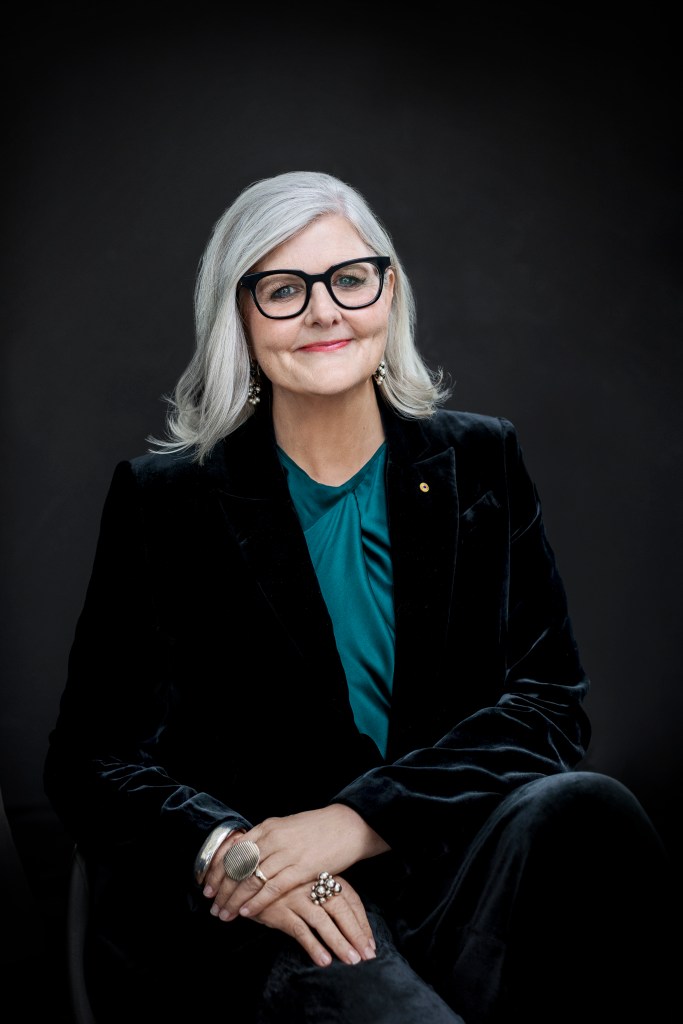
“Then there were also very complex negotiations with all kinds of other media players, particularly because our two biggest competitors were Telstra and News Ltd [through its cable television arm Foxtel].
“When I left, Optus had many more pay TV subscribers than Foxtel and a remarkable number of sporting rights, which are critical in signing up more. It had 100% of pay TV rights for AFL and rugby union, and 60% of rugby league. Sam was critical in all those negotiations.
“I’ve heard her describe it as the best job she had, and I would describe her as one of the very best executives I ever saw. And, of course, when Cable & Wireless took over [in 1997], she was the one person they took to London, so they had no doubt about her ability.”
Cousins recently read an article about Mostyn that talked about her many male mentors. Cousins resented the implication “that she needed us blokes to give her a lift”.
“She arrived fully formed,” he says.
For her part, Mostyn says she learnt from Cousins – who went on to head the Australian Conservation Foundation and continues supporting various green causes – that you could blend activist and corporate goals. “His view was about doing the right thing, but actually having to face the shareholders to describe what we were doing for them as shareholders.”
“Sometimes people will ask women to go on boards, and they don’t really want them there. And when they get there, [the board] behaves badly. She’s had at least one of those experiences.”
Wendy McCarthy, Mostyn’s friend and colleague
Cousins’ successor as Optus Vision CEO, Chris Anderson, says via LinkedIn that his strongest recollection of Mostyn was the loyalty she engendered. “Collectively, her team always said they never wanted to let Sam down.”
Mostyn was recruited to Cable & Wireless in London in 1998 but had to juggle that with the career of her barrister husband, Simeon Beckett. She warns women of the importance of choosing their partners wisely, saying Beckett is “sweet and generous and has his own sense of self-worth; who knows that being supportive of me is part of who he is”.
They had their only child, daughter Lotte, in London.
Mostyn returned to Optus for a brief stint before she found herself at insurer IAG which had recently gone through the turbulence of de-mutualisation after the collapse of HIH Insurance had caused ripples of chaos throughout businesses and community groups no longer able to get coverage.
Joining the dots
Mostyn set about figuring out what the new company’s purpose was as it shifted from being member-owned to profit-driven, says then CEO Michael Hawker, who admits he wasn’t sure at the time why they needed a “purpose”.
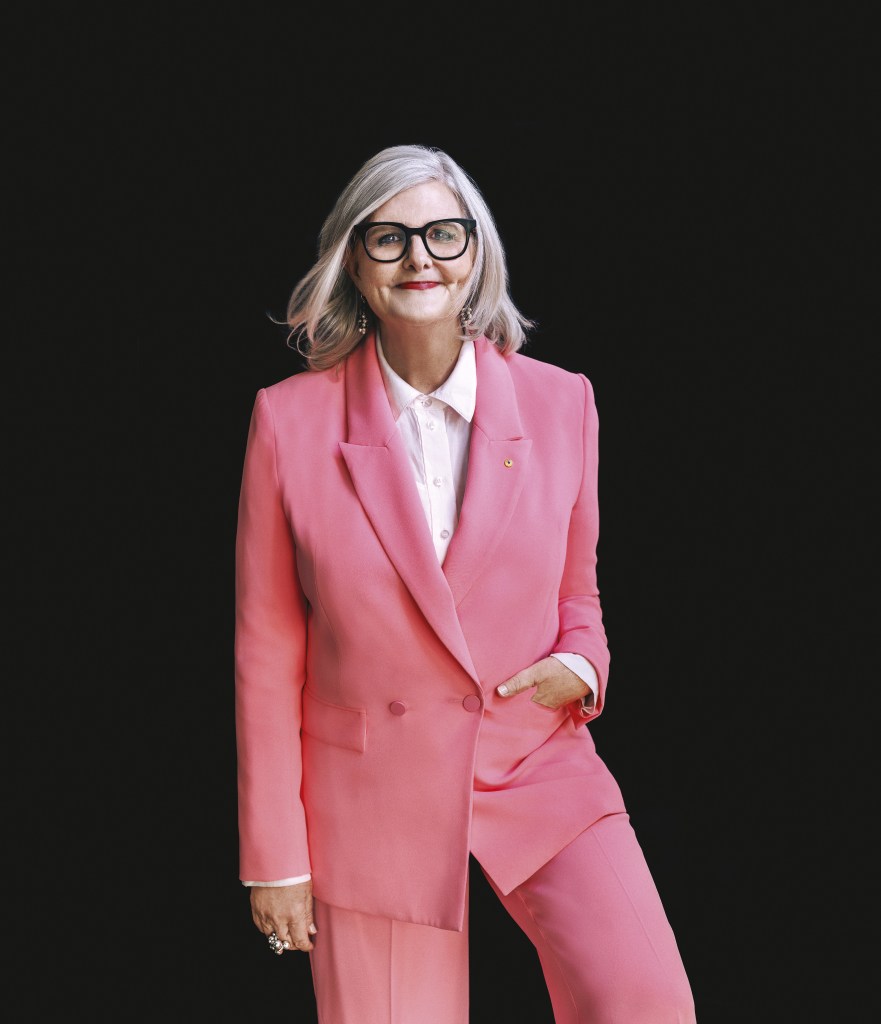
“We had a diverse group of people on the executive team, and some were very rough, but she was able to handle them very well,” says Hawker. “Not rough. Everyone said what they thought, which was quite handy. You’ve got everyone being honest … It took a while for people to understand what she was bringing to the business and then they realised she provided a lot of leverage in terms of how to think about the company’s future.”
Mostyn told Gillard that it was all about building a culture that delivered shareholder profit and social value. “I think about that when I see royal commissions into the aged-care system … the robo-debt system. They were all moments where the people involved lost complete sight of the purpose for which they existed. It became about the money and not about the people.”
Mostyn, however, was not a one-topic wonder, says Hawker. “She was one of those people who will sit in a meeting and bring vastly different dots of information and draw them into a forecast of where the economy or various risks might be moving towards, and she had a very good sense of what the general community was thinking. People would say to her, ‘You’re looking way, way too far in the future,’ but she was right pretty much the whole time.”
Hawker, a former test rugby player, said they brought in an expert to measure people’s capacity to deal with complexity and ambiguity. “I had two people on the executive team who were a ‘level-7’, which is the level that could run a country or the World Bank or something that’s hugely complex.” One of them was Mostyn. “So I knew she was going to go somewhere.”
Activist, businesswoman and feminist legend Wendy McCarthy was working as a consultant to IAG at the time. She had known Mostyn for years because her daughter Sophie had been at the Australian National University with her, but she got to know her in a more professional sense at IAG. “My first overwhelming response was how enthusiastic her staff were,” says McCarthy.
“They were really enchanted with her, completely trusted her. A lot of the work was significant change work. You rarely walked into a large business going through change where unsolicited admiration and support were offered about a leader.”
McCarthy started paying attention to Mostyn’s career. She noticed Mostyn knew how to take a risk. “She measures it. She knows how to do it. She will join a board knowing that most of the people there don’t actually like what she stands for, and her as well. So, is that a risk worth taking? If the issue is bigger than the person, she’ll give it a much stronger consideration.
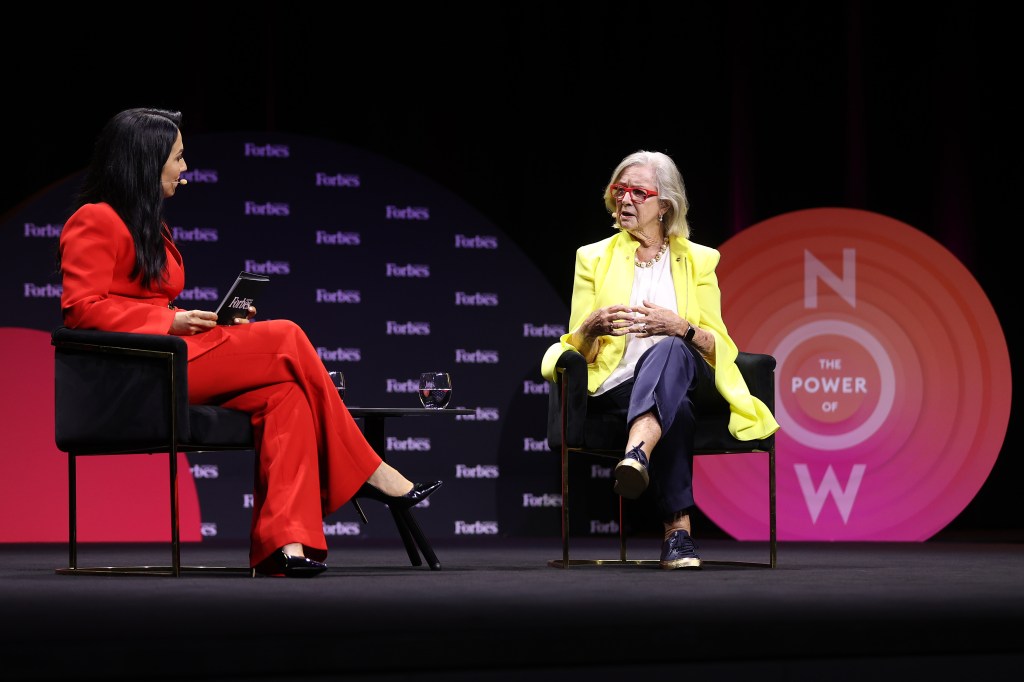
“Sometimes people will ask women to go on boards, and they don’t really want them there. And when they get there, [the board] behaves badly. She’s had at least one of those experiences. Most of us have. It goes with the territory around change.”
Mostyn says she handles such situations by returning to the lesson her father taught her about imposing her opinions. “In sitting around boardroom tables and wanting to be heard, I constantly ask myself in the moment, ‘Am I actively listening to the people in this room, or am I just waiting to talk?’ Because I’m a great ‘waiter’ to talk. You feel yourself getting ready. You’re forming the argument, but at that point, you are not hearing a single thing. You’re just waiting for someone else to draw breath to drop in. So, I check all the time: ‘Am I really listening?’”
Footy star
While at IAG, Mostyn was approached to throw her hat in the ring to become the AFL’s first
female commissioner.
She won the role and copped a lot of flak for having been a “quota” appointment. And while she speaks highly of the male commissioners and their good intent, there were still issues to thrash out. For example, if two women were in a room of 50, they’d be seated next to each other. As if to natter about handbags, she’d say. “In the early days, I was often asked about how we should handle sexual assault claims, issues involving women,” she told Kurt Fearnley in his One Plus One interview program. “I always used to say, ‘I’m not the mother in the room. I’m not your conscience. If you as men don’t have a perspective on this as commissioners, then we’re all failing in our job.’”
Soon after she joined the commission, a group of women playing the game came to see her, she told Gillard. “You’re the first woman in there,” they said to her. “You have a responsibility. We need the people running the game to know we deserve a league of our own.”
Mostyn was surprised to see women had been playing the game since the 1800s but had been kept out of its mainstream. She asked for research on the viability of a national women’s league.
“I was ignored for a while. I took the view I was just going to keep asking at every commission meeting. I didn’t care what they’d think of me. ‘Have we done the strategic work on whether a women’s game is viable?’ Finally, they did the work and realised it was an economic opportunity. It would ensure that Aussie rules would compete with soccer, which had a dual pathway for men and women, and that it would bring families back to the game. It would be great for the game.”
Those efforts bore fruit in 2017 when the AFL Women’s competition began with eight teams taking part.
The courage to talk
Australia’s second richest woman, Nicola Forrest, met Mostyn when she was chair of Carriageworks in Sydney and says she’s learnt a lot from her as a “big thinker”. “I continue to aspire to the way Sam convenes business, philanthropy and government to coalesce around a single problem – and her calm, indomitable way of doing so, even when tackling some of the nation’s biggest challenges,” Forrest says via email.
Ann Sherry, the senior bureaucrat and businesswoman who’d advised Mostyn to take the Cable & Wireless job in the 90s, has since worked with her in various capacities and says she doesn’t see any reason why the activism will stop now that Mostyn is bound by tighter protocols.
“She’s courageous. She’s prepared to step into issues. She was talking about ESG in her very early days in corporates. She can see where the world is going and is prepared to step into those issues. I think that’s a good trait for a governor-general – not to be looking backwards, but looking forwards. She’s honestly a really good human.”
Soft power
Sherry cites the example of when Mostyn took over as president of Chief Executive Women. She took it from representing an insular group of privileged women to giving “it the courage to talk on issues affecting women in a broader realm – economic security, childcare, all of those issues came to the fore.”
She led a large group of C-suite women to the Garma festival in Arnhem Land to see first-hand the issues involved with the Voice to Parliament referendum.
And after her tenure at Chief Executive Woman, she continued working with governments from both sides of the spectrum to continue the agenda, says Sherry.
“The same in sport – when she finished with the AFL, she went to the Swans and was instrumental in getting the Swans women’s team off the ground, but she was also part of the creation of the Minerva network, which is support for women athletes across all sports and a mentoring program where we get people to give us their time for nothing supporting female athletes to get jobs, to think about what they might do after sport. Sam doesn’t drop into things for a minute; she stays with them.“
Sherry is sure Mostyn will continue to have opinions despite vice-regal constraints. “I watched William Deane have a view on indigenous Australians. You just do things differently in those roles. There’s a way of exerting influence that’s softer than just having public views, and I think she’ll be masterful at that because, in a way, she’s done that for a long time.”
“She’s got a very loyal family. I think she’s been a really good daughter. These are things people forget to say about feminists.”
Wendy McCarthy
Wendy McCarthy predicts Mostyn will redefine the role of G-G “and the soft power that it has for a better Australia”.
“She understands the military and the services because she grew up in that sort of family.” And she’s known King Charles since the 90s when she was in London, says McCarthy, who also mingled with the future monarch on his many Australian visits. “She’s very savvy around the royal family and has worked on boards that the current king had worked on. They share a sense of belief in the environment. She’ll walk with charm and equality through all of those places.
“She met him when they were doing common work in green spaces in professional organisations in London. She got to know a lot of the work that was being done and a lot of his dreams about leadership.
“I’m not saying they’re best friends – they’re comfortable in each other’s company, and they have a lot of common understandings around the environment. So that will make a difference
because there won’t have to be any period of getting to know and understand how he thinks.”
In closing, McCarthy wants to point out that Mostyn is also “a nice wife and mother”.
“She’s got a very loyal family. I think she’s been a really good daughter. These are things people forget to say about feminists. They somehow think we arrived from the bottom or the top of the world like pixies, but we do have parents and children and so on.
“But she is really very good at that job, too.”
Powers of the Governor-General
The Australian constitution gives executive power to the King which is delegated to the Governor-General. It makes no mention of a prime minister or cabinet and as such, the Governor-General is the most powerful person in the country in theory, but not in practice.
The established principle is that the Governor-General exercises the powers and functions of the office only with the advice of ministers of state.
The Governor-General can:
- Give royal assent to a bill – proposed law – passed by the Senate and House of Representatives.
No Governor-General has ever refused to give royal assent. - Call a joint sitting of parliament.
- Start the process for a federal election.
- Act as commander-in-chief of the Australian Defence Force.
- Appoint a prime minister if an election has not resulted in a clear outcome.
- Dismiss a prime minister if they have lost the support of the majority of the House of Representatives or broken the law.
- Refuse a request from a prime minister to call an election, or any request for a double dissolution.
- Reserve powers. (The only guide to these powers is convention – tradition. This means the exact nature and scope of these powers is open to debate.)
- Oversee the honours and awards system.
- Administer the oath of office to the prime minister, ministers, judges and other officials.
Look back on the week that was with hand-picked articles from Australia and around the world. Sign up to the Forbes Australia newsletter here or become a member here.

